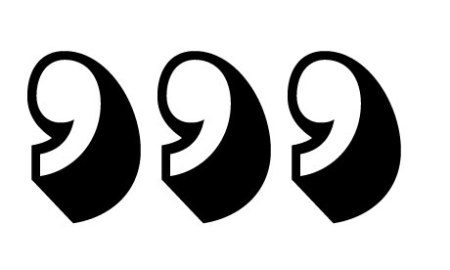We all know that we should choose our words very carefully, but what about the spaces between them? The gaps that allow us to breathe and separate out complicated sentence structures; gaps that sometimes include punctuation are perhaps just as important.
It isn’t necessarily what you say, but how you say it, that’s important. When speaking we can use tone, volume and inflection to accompany the words. This additional ‘colour’ makes clear whether we are in trouble, being lied to or complimented. Writing does not contain this ‘colour.’ The meaning has to be conveyed entirely by the words, and the gaps.
An article in the New York Times caught my eye, which I wanted to share with you today.
The article, which was published in 2006, concerned a comma, one of my gaps, which looked set to cost a Canadian company $1,000,000. Ouch!
Bell Aliant, the phone company entered into a contract to use Rogers telegraph poles. Rogers hires out usage in five year terms. Automatic renewal continues in five year terms unless cancellation is notified at least 12 months from the end of a particular term, starting from the second term.
What Rogers’ contracts department actually wrote was this:
“This agreement shall be effective from the date it is made and shall continue in force for a period of five (5) years from the date it is made, and thereafter for successive five (5) year terms, unless and until terminated by one year prior notice in writing by either party.”
The second comma, preceding the words ‘unless and until…’ should not have been used. Without it the meaning is as Rogers desired. With the comma in place the ‘unless and until…’ could also refer to the text preceding the first comma, meaning that the one year’s notice could be given at any time.
The comma police in this office often question my use of punctuation, especially my little friend the comma which I hitherto sprinkled far too freely into my writing.
Now, when I add in a careless comma, or two, unnecessarily, in my prose, I will spare a thought for a couple of Canadian executives and a legal team who tangled with the fiery fiend of punctuation, the comma, and got well-and-truly burnt, or would have done had the process taken place in an English-only country.
By a quirk of fate, two contracts were signed, one in English and one in French. As the French contract was unambiguous it was upheld. 


